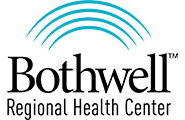Learn how to save a life
According to the American Heart Association (AHA), more than 350,000 out-of-hospital cardiac arrests occur annually in the United States. Of that group, about 46% receive CPR from a bystander.
CPR – or Cardiopulmonary Resuscitation – is an emergency lifesaving procedure performed when the heart stops beating. Immediate CPR can double or triple chances of survival after cardiac arrest. Use of an automated external defibrillator (AED) within the first three minutes of sudden cardiac arrest can increase survival rates over 80%. An AED is a small, lightweight device that allows individuals and first responders to treat sudden cardiac arrest by delivering a shock to the victim’s chest, ideally restarting their heart.
Kim Perez, Clinical Education director at Bothwell Regional Health Center, said most out-of-hospital heart attacks happen in homes followed by public locations.
“Because most cardiac situations happen outside the hospital setting, it’s critical that more of the public learn these life-saving skills,” she said. “In my opinion, everyone should know how to do CPR and with more and more AEDs being placed in our community, it’s vitally important to know how to use them.”
To train people in both skills, Bothwell’s Clinical Education department will offer Community CPR/AED and First Aid courses on Saturday, March 5.
The CPR/AED class is from 8 a.m. to 12:30 p.m., and the fee is $35. The course teaches participants how to provide CPR to an adult, child or infant and how to use an AED for adults and children.
“The number one reason to take a CPR/AED course is because you could save someone’s life,” Perez said. “When someone is in distress the very first step is to call 911. Then, perform CPR if necessary.”
Class participants also may add an optional half-day course on first aid for adults and children. The First Aid class is from 12:30 to 3:30 p.m., and the fee is $35. Basic first aid covers the steps taken to help an injured or sick person in the first minutes after an illness or injury. The fee to take both classes is $50.
The AHA does not recommend a minimum age for learning CPR and that the ability to perform CPR is based more on body strength than age. Studies have shown that children as young as nine years old can learn and retain CPR skills.
“Typical participants in these classes include retail employees, security, law enforcement, health and fitness staff, school staff, teens, and parents and grandparents,” Perez said. “We are also happy to arrange special classes for large groups.”
The class will meet in the Bothwell Education Center at 601 E. 14th Street, and additional courses will be offered June 18 and Nov. 5. For more information or to register, contact the Bothwell Education Center at classes@brhc.org or call 660.827.9516. Bothwell also offers Safe Sitter courses, Baby Café, a free breastfeeding support service, and a virtual cancer support group. To view current meeting days, visit the Classes & Support Groups page.
